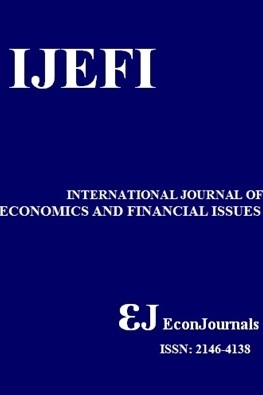Economic Freedom Indicators and Higher Education Reforms: Evaluation and Planning Internationalization Process
Economic Freedom Indicators and Higher Education Reforms: Evaluation and Planning Internationalization Process
Higher Education Economic freedom indicators, Internationalization of Universities, SAARC countries, Panel Fixed Effect Regression,
- Başlangıç: 2011
- Yayıncı: İlhan ÖZTÜRK
The Impact of Audit Reports on Financial Information Content
Uwalomwa Uwuigbe, Olubukola Ranti Uwuigbe, Moyosore Esther Durodola, Jimoh Jafaru, Rehimetu Jimoh
Military Expenditure and Economic Growth in South Asian Countries: Empirical Evidences
Mahmoud Mahmoudzadeh, Ali Seyfi
Determinants of Corporate Financial Factors on Tax Reporting Strategy
Hashem Valipour, Saeid Homayoun, Fateme Piran
Pham Dinh LONG, Ho Thi Mai ANH
Mehdi Behrad-Amin, Gholamreza Zamanian, Marzie Esfandiari
Ghaith Alzaidy, Mohd Naseem Bin Niaz Ahmad, Zakaria Lacheheb
Mamoun Mohamad Matalqah, Talib Mohamad Warad
Investigate the Relationship between Institutional Ownership in Tehran Stock Exchange
Mohammad Reza POURHOSEİN, Ahmad Aghazadeh Kama KOL, Bahram Molaheidari VİSHKAİİ, Fatemeh Pouraskari JOURSHARİ
